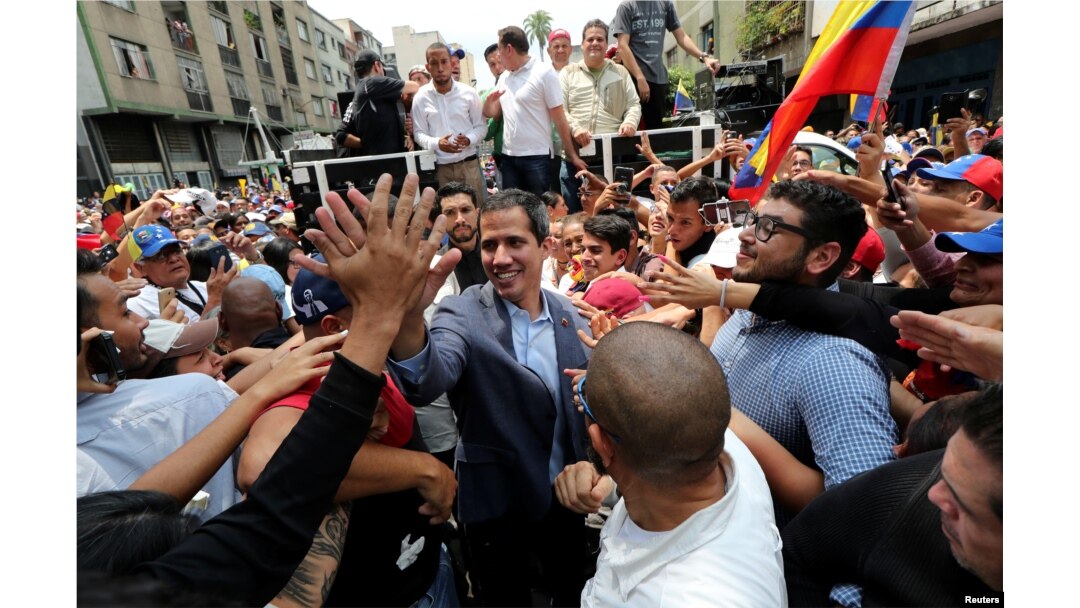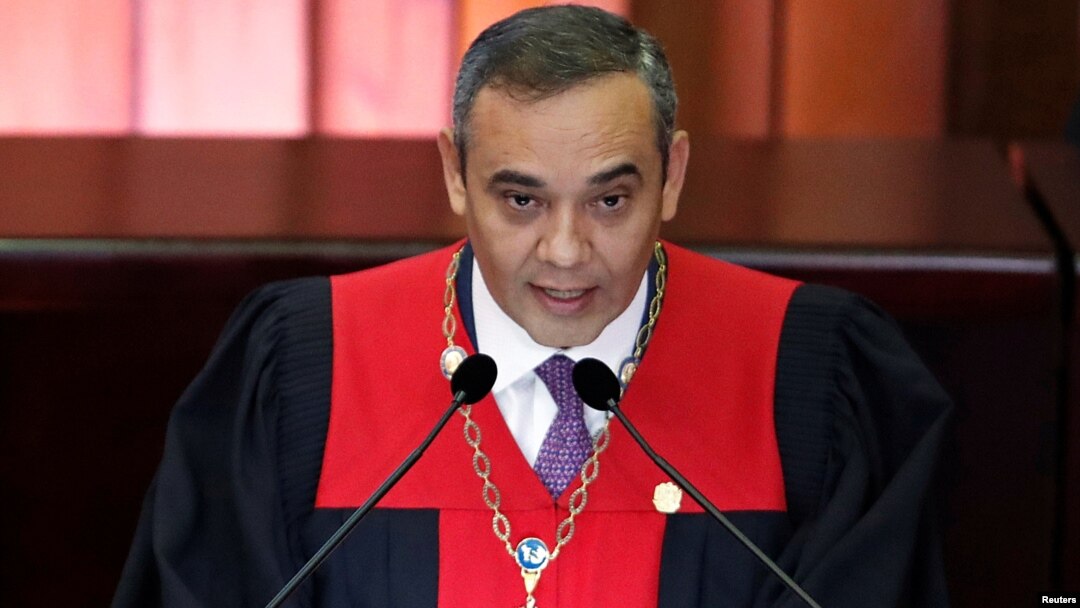Margaret Besheer at the United Nations contributed to this report.
Venezuela's chief justice is asking lawmakers to strip opposition leader Juan Guaido of his parliamentary immunity — a move that could pave the way for him being jailed.
Justice Maikel Moreno on Monday said Guaido should be jailed for violating a Supreme Court-imposed ban on leaving the country.
Guaido, who has immunity from prosecution as head of the National Assembly, last month visited several South American countries to consolidate regional support as he seeks to oust President Nicolas Maduro.
The Maduro government also accuses Guaido of inciting violence linked to street protests and receiving illicit funds from abroad.
Guaido invoked the country's constitution to assume an interim presidency in January, arguing Maduro's 2018 re-election was illegitimate. He has been recognized by the United States and about 50 other countries as Venezuela’s legitimate leader.

Venezuelan opposition leader Juan Guaido, whom many nations have recognized as the country's rightful interim ruler, greets supporters during a rally in Los Teques, Venezuela, March 30, 2019.
The 35-year-old opposition leader, meanwhile, continued his calls for protests after Maduro announced a 30-day plan to ration electricity.
Guaido said in a twitter post late Sunday, "We'll see each other in the streets tomorrow," adding, "we will not hide from the dictator."
Maduro said in a speech Sunday on national television the rationing plan will help deal with power outages that have also affected the country’s water supply and communications. He said schools would remain closed and the length of the workday will be cut to conserve power during the 30-day period.
In another development, the president of the International Committee of the Red Cross, Peter Maurer, told VOA on Monday that he hopes to go to the country soon.
"I hope to visit Venezuela soon, and we are working on such a visit," he said in an interview.
The ICRC already has teams in the country and in neighboring Colombia, and has been scaling up its humanitarian response. Maurer said the whole Red Cross and Red Crescent movement is doing their "best to fill gaps, to assist Venezuelans where needs are."
On Friday, the International Federation of the Red Cross — which along with the ICRC and national societies make up the Red Cross and Red Crescent Movement — announced that after meetings in Caracas, they had reached an agreement to scale up health activities across the country, where the healthcare system has been in crisis for months.


